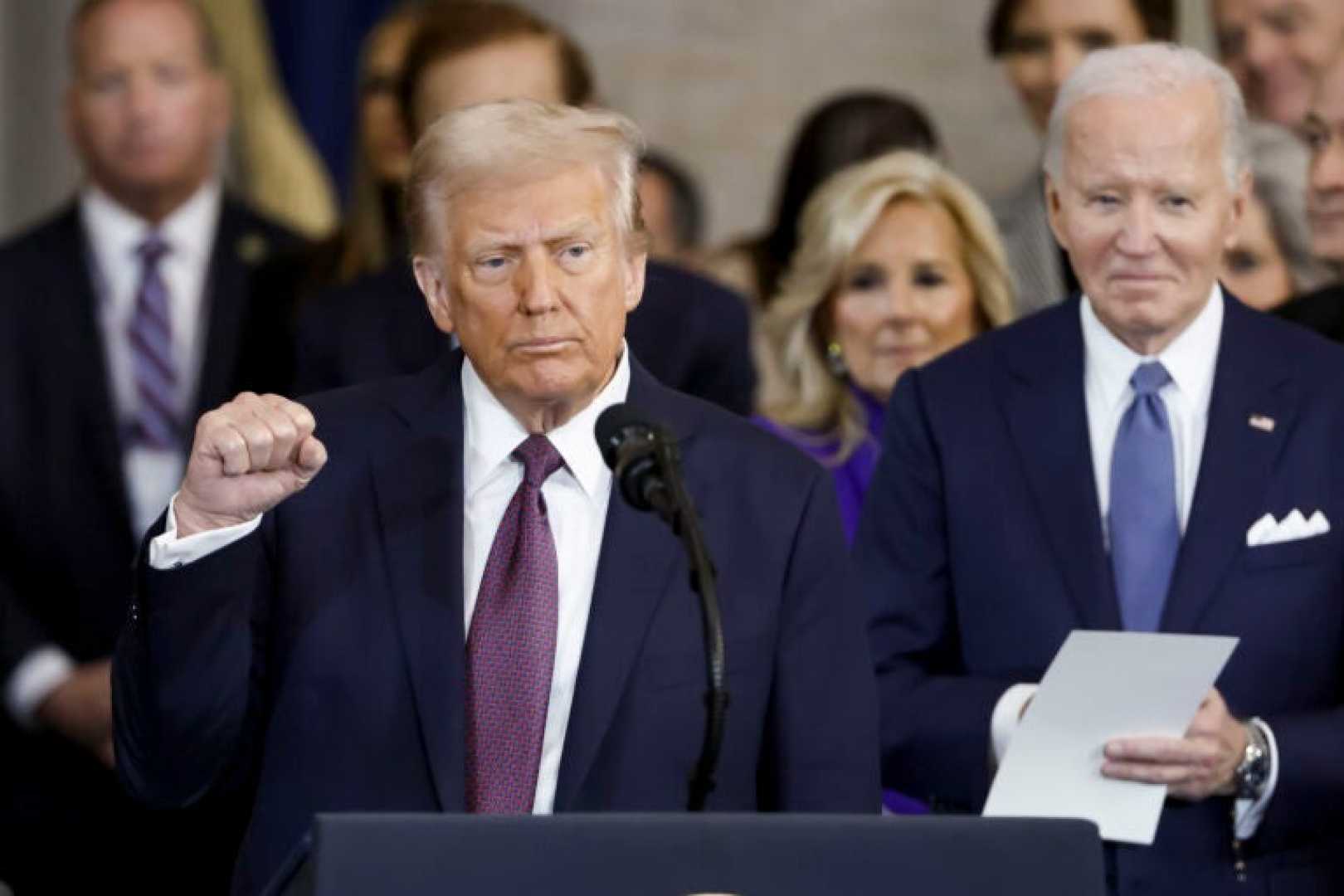Politics
Trump Unveils Sweeping Immigration Overhaul in First Presidential Speech

LOS ANGELES, Calif. — Former President Donald Trump, in his first speech since returning to office, announced a series of sweeping executive orders aimed at overhauling U.S. immigration policies. The measures, which include mobilizing troops to the U.S.-Mexico border, declaring a national emergency to curb irregular immigration, and designating Mexican drug cartels as terrorist organizations, mark a significant shift in the nation’s approach to border security.
Speaking to a Republican-dominated Congress, Trump vowed to end the ‘Catch and Release’ policy, which allows migrants to remain in the U.S. while their immigration cases are processed. ‘We will detain and deport anyone who enters our country illegally,’ Trump declared, eliciting a standing ovation from lawmakers. ‘Millions will be sent back to their home countries.’
The new administration also plans to reinstate the ‘Remain in Mexico’ policy, which requires asylum seekers to wait in Mexico while their cases are adjudicated. This policy, which affected 75,000 migrants during Trump’s first term, had been discontinued in 2022. Its revival is expected to reignite tensions with Mexico, particularly with President Claudia Sheinbaum, who has criticized the measure as inhumane.
Trump invoked the Alien and Sedition Acts of 1798, a set of laws that granted the executive branch broad powers to deport non-citizens. These laws, initially enacted during tensions with France, were highly controversial and contributed to the downfall of President John Adams. Critics argue that Trump’s reliance on these statutes could face legal challenges, as they conflict with modern constitutional protections.
In addition to border measures, Trump proposed a four-month pause on refugee resettlement and signaled plans to restrict asylum rights further. The administration also disabled the CBP One app, a tool used by 30,000 migrants to schedule asylum appointments, leaving their cases in limbo. ‘Change begins today, and it will happen very quickly,’ Trump said, emphasizing his commitment to rapid implementation.
Despite the aggressive rhetoric, the administration inherits historically low border crossing numbers. In December, fewer than 100,000 crossings were recorded for the first time since January 2021, a 70% drop compared to the same period in 2023. Analysts attribute this decline to the lingering effects of the COVID-19 pandemic and stricter enforcement under the previous administration.
Trump’s executive orders also target birthright citizenship, a right protected by the 14th Amendment. Legal experts have warned that such a move would face immediate constitutional challenges. ‘The 14th Amendment is clear: anyone born on U.S. soil is a citizen,’ said constitutional law professor Laura Gomez. ‘This cannot be undone by executive action.’
The designation of Mexican drug cartels as terrorist organizations has raised concerns about potential U.S. military intervention in Mexico. Mexican officials have condemned the move, calling it a violation of sovereignty. ‘This is a dangerous escalation,’ said Foreign Minister Marcelo Ebrard. ‘We will not tolerate any infringement on our national territory.’
As the new administration moves forward, legal battles and diplomatic tensions are expected to intensify. With immigration policies at the forefront of Trump’s agenda, the coming months will test the limits of executive power and the resilience of the U.S. immigration system.












